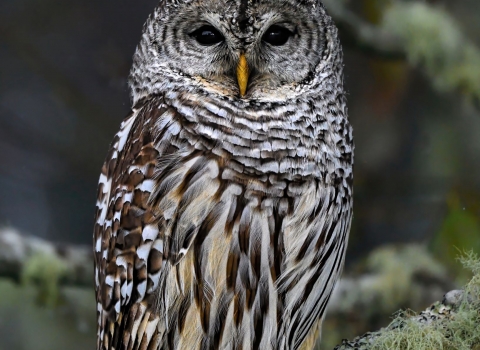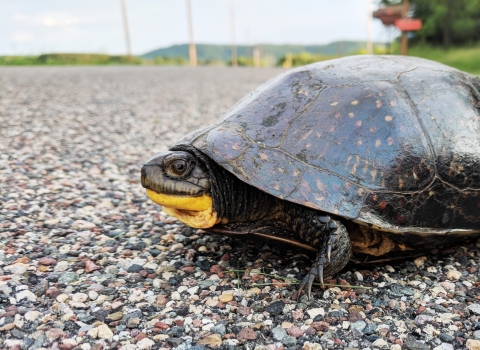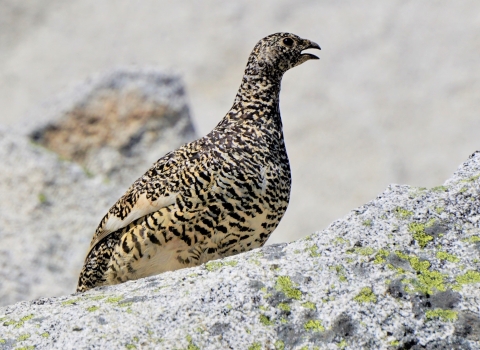The Service is publishing a Notice of Availability of a draft Programmatic Safe Harbor Agreement for the Houston toad submitted by Texas Parks and Wildlife Department (TPWD) and draft environmental assessment. TPWD’s proposed Agreement would facilitate conservation actions by interested landowners that could assist in the recovery of the Houston toad, listed as endangered under the Endangered Species Act. The public will have 60 days to review and comment on the proposed Agreement and draft environmental assessment.
“The Service and Texas Parks and Wildlife Department have been working closely on efforts to recover the imperiled Houston toad, and we greatly appreciate TPWD’s efforts to develop a Programmatic Safe Harbor Agreement.” said Dr. Benjamin N. Tuggle, the Service’s Southwest Regional Director. “Private landowners are critical to the successful conservation of the Houston toad and providing them with tools such as the proposed Houston Toad Safe Harbor Agreement would give them peace of mind that their actions to conserve a part of Texas’s natural heritage would not result in future restrictions on their lands.”
The Houston toad is a small, greenish-brown, speckled amphibian that can be distinguished from other toads by its unique high-pitched, trill-sounding call that males emit during breeding choruses each spring. It was one of the first amphibians federally listed as an endangered species and is listed as endangered by the State of Texas. The Houston toad occurs mostly on privately owned property in nine Texas counties including Austin, Bastrop, Burleson, Colorado, Lavaca, Lee, Leon, Milam, and Robertson.
A Safe Harbor Agreement is a voluntary agreement involving private or other non-federal property owners whose actions contribute to the recovery of species listed as threatened or endangered under the Endangered Species Act (Act). In exchange for actions that contribute to the recovery of listed species, participating property owners receive formal assurances from the Service that if they fulfill the conditions of the agreement, the Service will not require any additional or different management activities by the participants without their consent. In addition, at the end of the agreement period, participants may return the enrolled property to the baseline conditions that existed at the beginning of the agreement.
The Houston Toad Safe Harbor Agreement is what is known as a programmatic Safe Harbor Agreement. Under the Agreement, Texas Parks and Wildlife Department can enroll individual property owners within the nine county area and convey the permit authorization and assurances to them through a “certificate of inclusion” for 30 years. The programmatic Safe Harbor Agreement provides an efficient and streamlined tool for landowners interested in participating in Houston toad conservation actions including brush management, forest restoration, prescribed burning, pond management, invasive species invasive species
An invasive species is any plant or animal that has spread or been introduced into a new area where they are, or could, cause harm to the environment, economy, or human, animal, or plant health. Their unwelcome presence can destroy ecosystems and cost millions of dollars.
Learn more about invasive species control, and reintroduction of Houston toads.
The Service encourages the public to review and comment on the draft Houston toad Safe Harbor Agreement and draft environmental assessment. The draft Houston toad Safe Harbor Agreement and draft environmental assessment are available at:
https://www.fws.gov/southwest/es/AustinTexas/ESA_Species_news.html#HT_SHA.
We will accept public comments until October 28, 2016. Comments may be submitted by one of the following methods:
- U.S. Mail: U.S. Fish and Wildlife Service, Austin Ecological Services Field Office, 1071 Burnet Road, Suite 200, Austin, TX 78758; by phone at 512–490–0057; or by fax at 512–490–0974.
- Electronically: fw2_hcp_permits@fws.gov.
America’s fish, wildlife, and plant resources belong to all of us, and ensuring the health of imperiled species is a shared responsibility. We’re working to actively engage conservation partners and the public in the search for improved and innovative ways to conserve and recover imperiled species.
The U.S. Fish and Wildlife Service works with others to conserve, protect, and enhance fish, wildlife, plants, and their habitats for the continuing benefit of the American people. For more information on our work and the people who make it happen, visit http://www.fws.gov/. Connect with our Facebook page, follow our tweets, watch our YouTube Channel and download photos from our Flickr page.


